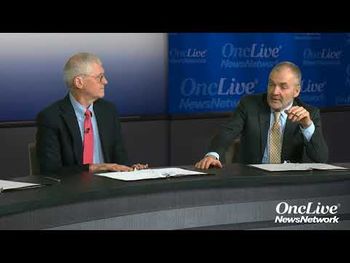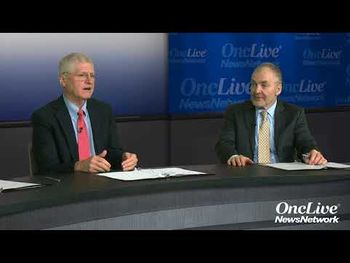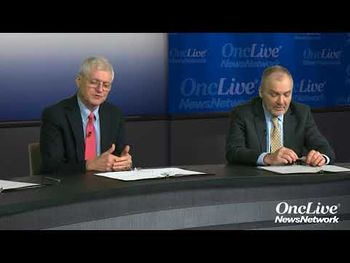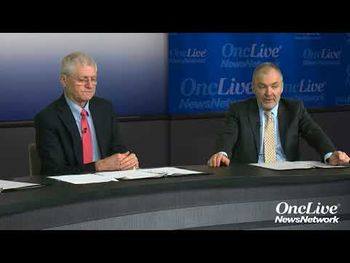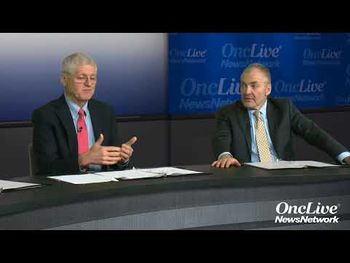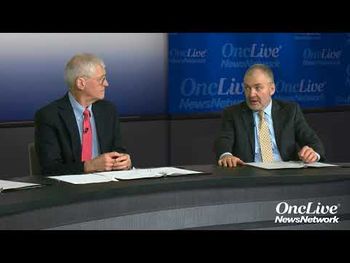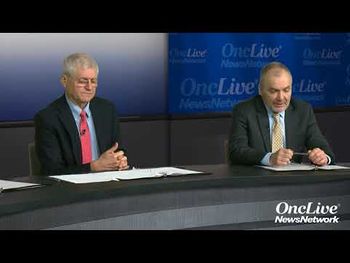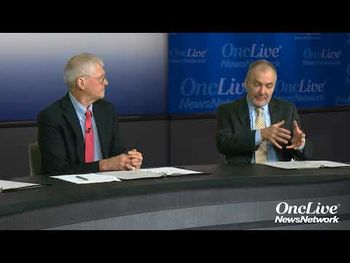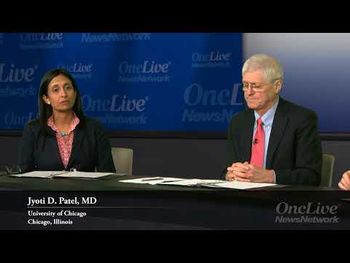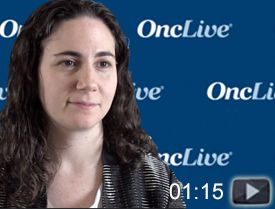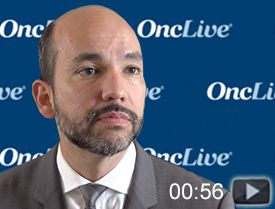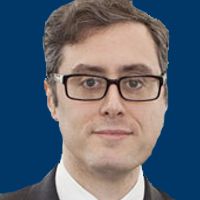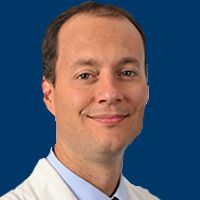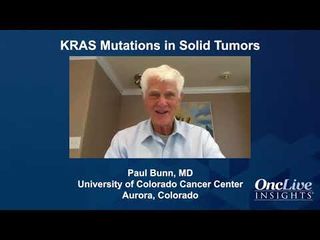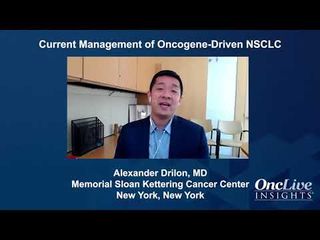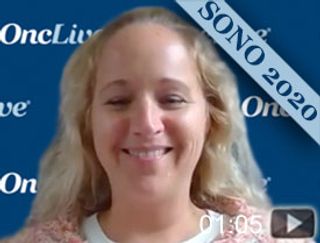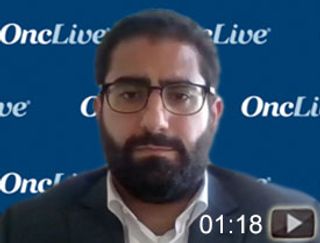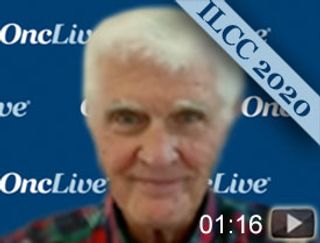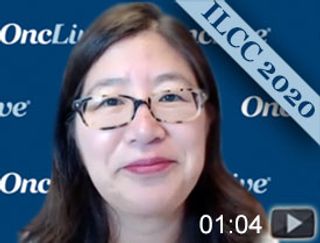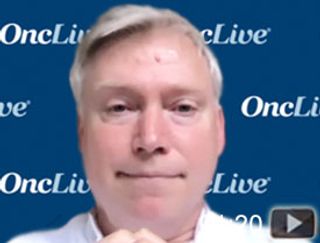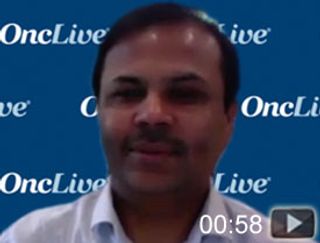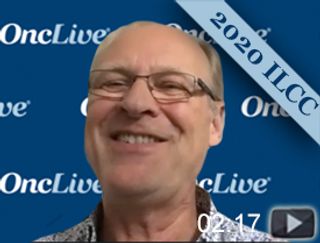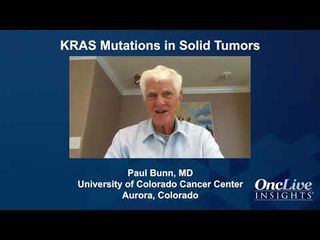
Lung Cancer
Latest News
Latest Videos

CME Content
More News
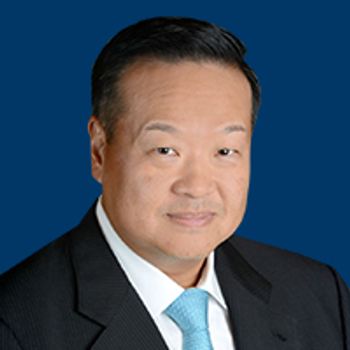
Edward S. Kim, MD, recaps the findings from the PACIFIC study of durvalumab and discussed the treatment of patients with stage III NSCLC.
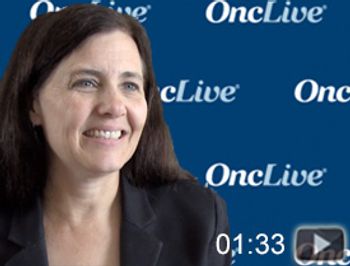
Heather Wakelee, MD, associate professor of Medicine (Oncology) at Stanford University Medical Center, discusses available treatment for patients with lung cancer who progress without a T790M mutation.
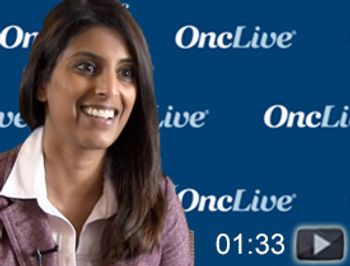
Jarushka Naidoo, MBBCh, assistant professor of oncology, Johns Hopkins University, discusses studies investigating immune-related adverse events for patients with lung cancer.
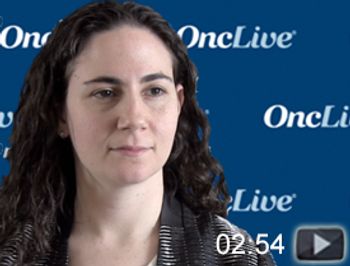
Sarah B. Goldberg, MD, MPH, an assistant professor of medicine at the Yale School of Medicine and Yale Cancer Center, discusses resistance to first- or second-line osimertinib (Tagrisso) for patients with EGFR-mutated non–small cell lung cancer (NSCLC).
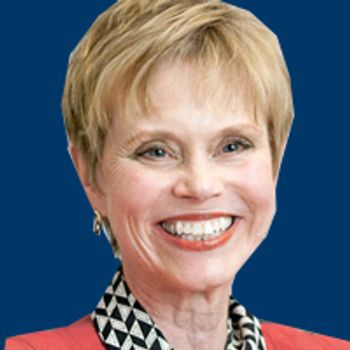
Treatment with the combination of atezolizumab, bevacizumab, carboplatin, and paclitaxel significantly improved overall survival compared with bevacizumab and chemotherapy alone for patients with advanced nonsquamous non–small cell lung cancer.

Chad Pecot, MD, discusses the rapidly growing area of combination immunotherapy in non–small cell lung cancer.
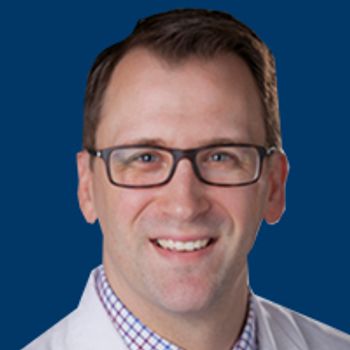
Jeffrey Melson Clarke, MD, discusses the latest developments with biomarkers in NSCLC.
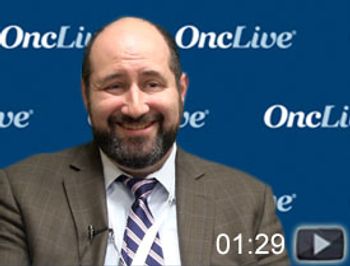
Ari VanderWalde, MD, MPH, director, West Cancer Center, assistant professor, Division of Hematology/Oncology, the University of Tennessee Health Science Center, discusses the design of the IMpower150 and KEYNOTE-021 trials.
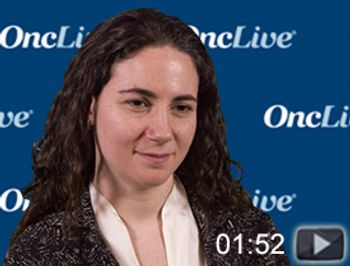
Sarah B. Goldberg, MD, MPH, an assistant professor of medicine at the Yale School of Medicine and Yale Cancer Center, discusses osimertinib (Tagrisso) for the treatment of patients with non–small cell lung cancer.

Rovalpituzumab Tesirine (Rova-T) delivered disappointing preliminary results in the third-line setting for patients with relapsed/refractory small cell lung cancer with high DLL3 expression.
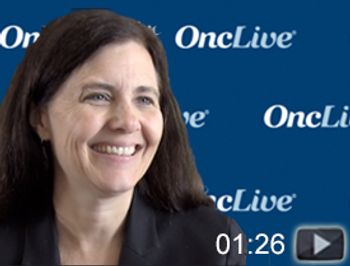
Heather Wakelee, MD, associate professor of Medicine (Oncology) at Stanford University Medical Center, discusses EGFR tyrosine kinase inhibitors (TKIs) in lung cancer.
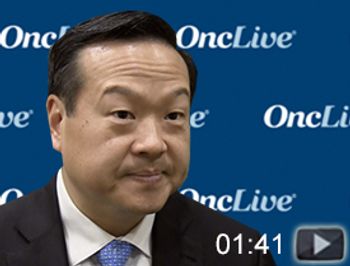
Edward S. Kim, MD, chair, Department of Solid Tumor Oncology, Levine Cancer Institute, discusses the impact of the PACIFIC trial in non–small cell lung cancer (NSCLC).

The addition of atezolizumab to frontline carboplatin and nab-paclitaxel delayed progression or death compared with chemotherapy alone for patients with advanced squamous non–small cell lung cancer.
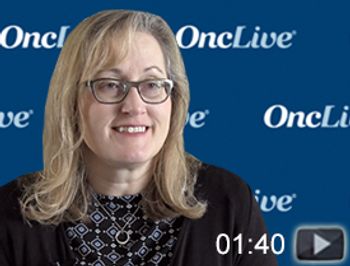
Julie R. Brahmer, MD, associate professor of oncology, co-director of the Upper Aerodigestive Department, Bloomberg Kimmel Institute for Cancer Immunotherapy, Johns Hopkins Medicine, discusses second-line pembrolizumab (Keytruda) in non–small cell lung cancer.
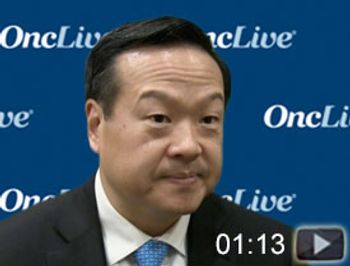
Edward S. Kim, MD, chair, Department of Solid Tumor Oncology, Levine Cancer Institute, discusses the prevalence of hyperprogression and pseudoprogression in patients who receive immunotherapy.
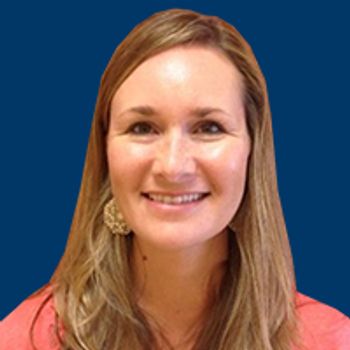
Heather Greene, NP, discusses the safety profile for patients with lung cancer receiving immunotherapy, and the importance for reporting immune-related adverse events.
